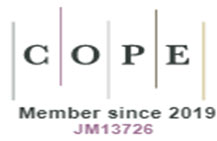Peer review and reviewers are crucial to the publishing process, it validates an author’s research to confirm its suitability for publication. The “Journal of Issues and Ideas in Education” is a double-blind, peer-reviewed journal where the editor(s) mediate with the reviewer(s) and corresponding author(s). The reviewer(s) are subject experts, assigned by the editor to judge the quality, importance, and scientific contribution of the submitted manuscript. Reviewing process should be complete within the defined time limit without any biased approach. If review is not possible within given time frame, you can approach the editor(s) for providing extension in time. Your expert comments are supposed to be submitted through the online process. Please check all required documents (text material, figures, rough data, etc.) on which you need to provide your feedback. If anything is missing please ask to the editor(s) only. Please read more about the reviewer(s) responsibilities by downloading the ethical guidelines:
https://publicationethics.org/sites/default/files/ethical-guidelines-peer-reviewers-cope.pdf
The peer review of the manuscripts has been classified in three screening stages. During the screening, the reviewer must focus on the originality and novelty of the manuscript. The article should possess scientific soundness and industrial significance with good quality presentation. For more details about the peer review policy:
The Editor would affirm that the publication ethics & guidelines have been followed before making the final decision.
The paper is accepted and does not need further modification.
The paper will be accepted after minor revisions. In such a case, the revised paper will be sent to be reviewed by the original reviewers or editor can make the final decision .
The paper will be sent to be reviewed by the original reviewers unless they opt out).
The paper will not be accepted due to major deficiencies. And it is not recommended to be resubmitted.
Authors must revise their papers within the allowed time. Manuscripts with major revisions will be sent to original reviewers for the second-round review. Manuscripts with minor revisions will usually be reviewed by the editor. The final decision will be made by the editor after careful and unbiased assessment.
There is no authorship change permissible after the final submission on the Manuscript submission system .


